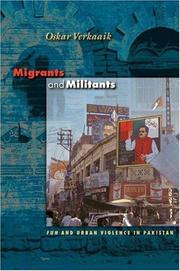| Listing 1 - 2 of 2 |
Sort by
|
Book
ISBN: 9780300205558 9780300213355 0300213352 0300205554 Year: 2015 Publisher: New Haven (Conn.): Yale university press,
Abstract | Keywords | Export | Availability | Bookmark
 Loading...
Loading...Choose an application
- Reference Manager
- EndNote
- RefWorks (Direct export to RefWorks)
This groundbreaking book is the first sustained anthropological inquiry into the idea of remote areas. Shafqat Hussain examines the surprisingly diverse ways the people of Hunza, a remote independent state in Pakistan, have been viewed by outsiders over the past century. He also explores how the Hunza people perceived British colonialists, Pakistani state officials, modern-day Westerners, and others, and how the local people used their remote status strategically, ensuring their own interests were served as they engaged with the outside world.
Ethnicity --- Hunza (Pakistan) --- Civilization --- Rural conditions --- Historical geography --- Physical geography --- Ethnic identity --- Group identity --- Cultural fusion --- Multiculturalism --- Cultural pluralism --- Geography --- Geography, Historical --- Social aspects --- Civilization. --- Rural conditions. --- Ethnicity - Pakistan - Hunza --- Physical geography - Social aspects - Pakistan - Hunza --- Hunza (Pakistan) - Civilization --- Hunza (Pakistan) - Rural conditions --- Hunza (Pakistan) - Historical geography

ISBN: 069111708X 0691117098 9780691117089 9780691117096 0691187711 Year: 2004 Publisher: Princeton (N.J.): Princeton university press,
Abstract | Keywords | Export | Availability | Bookmark
 Loading...
Loading...Choose an application
- Reference Manager
- EndNote
- RefWorks (Direct export to RefWorks)
Muhajir (Pakistani people) --- Political violence --- Islam and politics --- Ethnicity --- Politics and government --- Muhājir Qaumī Mūvmenṭ --- Pakistan --- #SBIB:39A6 --- #SBIB:39A75 --- Etniciteit / Migratiebeleid en -problemen --- Etnografie: Azië --- Violence --- Political crimes and offenses --- Terrorism --- Mohajir (Pakistani people) --- Ethnology --- Ethnic identity --- Group identity --- Cultural fusion --- Multiculturalism --- Cultural pluralism --- Muhājir Qaumī Mūvmenṭ. --- Em. Kiyū. Em. --- MQM --- M.Q.M. --- Mohajir Qaumi Movement --- Muhājir Qaumī Mūvmanṭ --- Muttahida Quami Movement --- Politics and government. --- Muhajir (Pakistani people) - Politics and government --- Political violence - Pakistan --- Islam and politics - Pakistan --- Ethnicity - Pakistan --- Pakistan - Politics and government
| Listing 1 - 2 of 2 |
Sort by
|

 Search
Search Feedback
Feedback About UniCat
About UniCat  Help
Help News
News